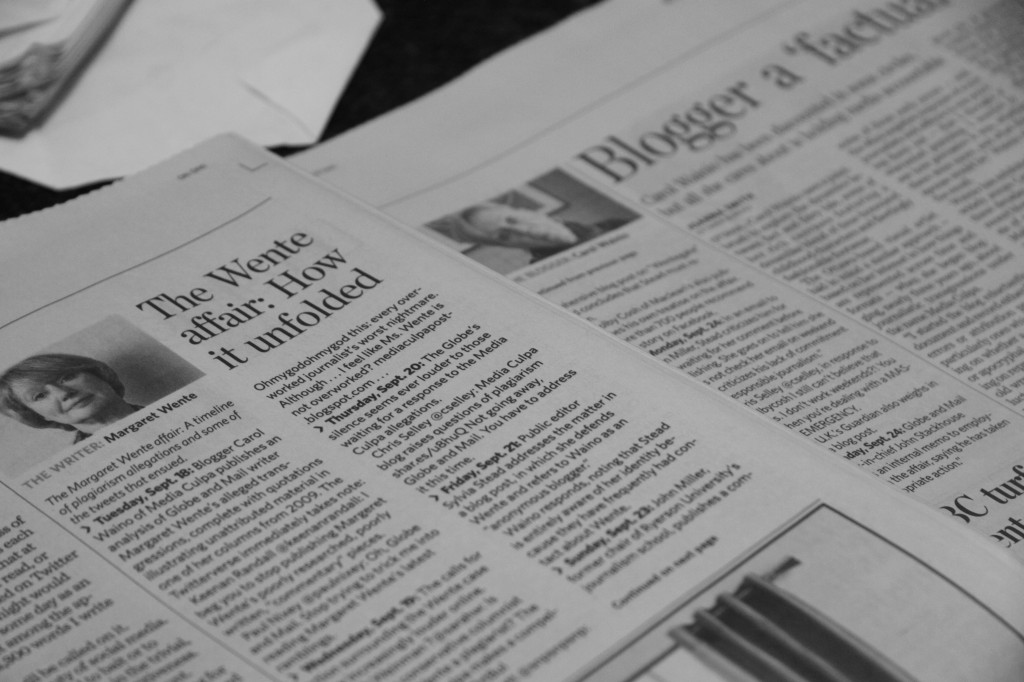Most writers would have paid strict attention this past week — and maybe woke up sweaty and trembling from nightmares — as events unfolded at The Globe and Mail. Columnist Margaret Wente was accused of plagiarism in a 2009 column and has been disciplined by the Globe. You can read her column defending herself, including an apology of sorts here.
It’s also fascinating (although I’m sure for no one other than a writer) to get a peek backstage at The Globe and Mail by reading public editor Sylvia Stead’s reminder to writers on how to avoid their worst real wide-awake nightmare: being accused of plagiarism. Accusations like that stick, they are hard to recover from.
Like any big, bad, awful thing we are capable of, the first step to avoiding it is to realize we are not above it.
We are all capable of being sloppy with our work, of being forgetful and lazy, of going for the easy route of just barely rewriting someone else’s research and calling it our own.
Being on constant guard is the absolute best defence against plagiarism. Here are a few more:
■ Keep careful notes as you interview sources. Often when I am interviewing — especially the deeper I am into a story — I am starting to make connections and think about structure as they speak. If I think of a phrase or line that I know I want to use, I jot it down with a big MINE beside it. That way, when I’m reading through my notes I know that everything else on that page isn’t actually mine. It’s their’s.
■ Go to the primary source whenever possible. Excellent journalists have been accused of plagiarism because they used a quote from another writer’s article, quoting an expert or witness. If it wasn’t said directly to you — and of course, you would know that — then the reader (and your career) deserve to know exactly where you read or heard it.
■ Before you submit your article, read it over again through that filter of caution. Keep your interview notes. I once felt offended when an editor asked me to send in my interview notes along with the story for fact-checking. Now that I think about it, I should have been thankful.


Fair point that everyone should keep better notes. But perhaps you understate the depth and nature of Wente’s plagiarism?
Wainio has been, after all, publishing evidence of Wente’s behaviour since at least May of 2011. Furthermore, not a single person from the Globe and Mail has admitted that Wente has plagiarized on several occasions. They have, to date, only admitted, in print, a single case. And to top it all off there is a fresh case of plagiarism up at Wainio’s blog: http://mediaculpapost.blogspot.ca/2012/09/margaret-wente-twitter-plagiarism-and.html
It looks to me that this nightmare is of Wente’s own careful construction.
I was surprised when I visited Wainio’s site to read of the history here, you are right, this seems to go deep, and I guess the point of my blog was not to detail out Wente’s transgressions, but to think out loud about how to avoid going down this path, even by mistake. But I hear you. This is also making me more vigilant as an editor. This morning I worked on a piece a writer submitted and found that the opening line was pretty similiar, too similar for my comfort, to an article posted on the subject’s website. I guess we all have to watch it all the time.